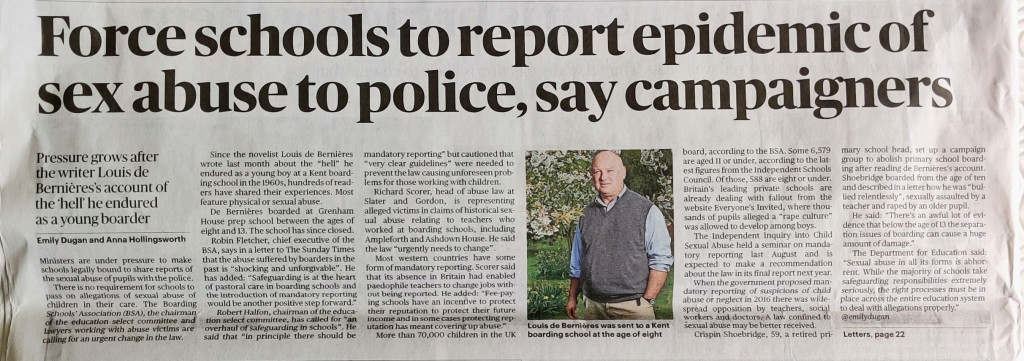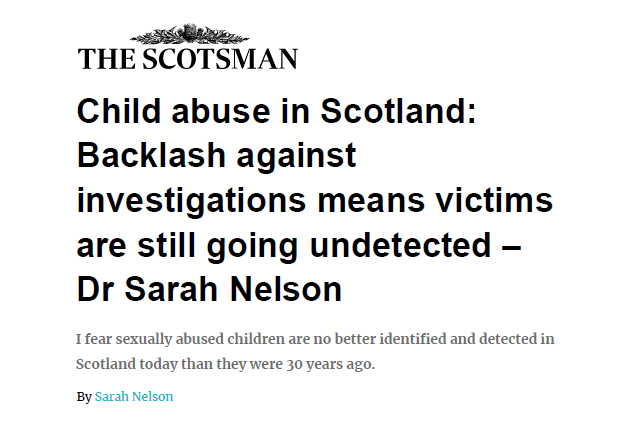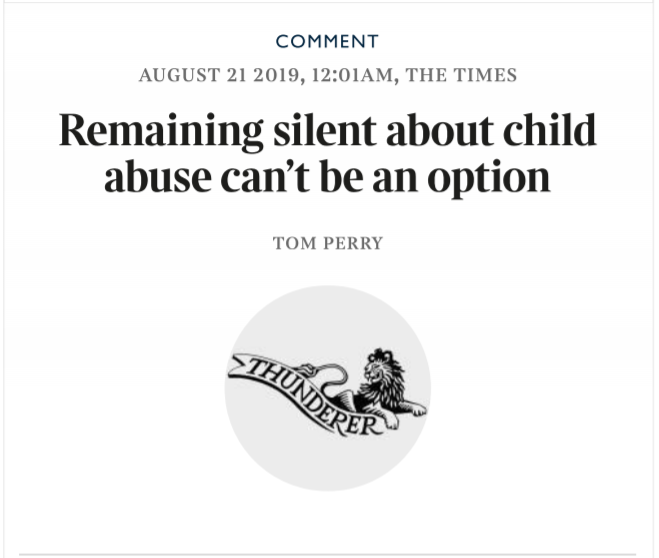Boarding Schools’ Association says it wants Mandatory Reporting | (as long as it doesn’t work)
In recent weeks the Sunday Times has run a series of articles about non-recent sexual and physical abuse in boarding schools. The articles stemmed from Louis de Bernières going public about the abusive time he had while a pupil at Grenham House in Birchington, Kent.
Here’s the first article, the second and the most recent from 02.05.21 is below:


